-
 Bitcoin
Bitcoin $107,360.0175
0.36% -
 Ethereum
Ethereum $2,425.2303
-1.15% -
 Tether USDt
Tether USDt $1.0003
-0.01% -
 XRP
XRP $2.1850
4.33% -
 BNB
BNB $646.4128
0.37% -
 Solana
Solana $146.0511
2.89% -
 USDC
USDC $0.9998
-0.01% -
 TRON
TRON $0.2754
1.55% -
 Dogecoin
Dogecoin $0.1626
0.80% -
 Cardano
Cardano $0.5599
0.49% -
 Hyperliquid
Hyperliquid $37.2026
0.62% -
 Bitcoin Cash
Bitcoin Cash $499.0346
0.17% -
 Sui
Sui $2.7251
2.86% -
 Chainlink
Chainlink $13.1187
-0.19% -
 UNUS SED LEO
UNUS SED LEO $9.0747
0.54% -
 Avalanche
Avalanche $17.6526
0.87% -
 Stellar
Stellar $0.2373
1.02% -
 Toncoin
Toncoin $2.8387
0.25% -
 Shiba Inu
Shiba Inu $0.0...01136
1.04% -
 Litecoin
Litecoin $85.2460
1.04% -
 Hedera
Hedera $0.1473
2.04% -
 Monero
Monero $314.3978
1.56% -
 Bitget Token
Bitget Token $4.6799
0.81% -
 Dai
Dai $1.0001
0.02% -
 Polkadot
Polkadot $3.3403
0.70% -
 Ethena USDe
Ethena USDe $1.0002
0.02% -
 Uniswap
Uniswap $6.9908
0.77% -
 Pi
Pi $0.5310
-3.57% -
 Pepe
Pepe $0.0...09292
-0.19% -
 Aave
Aave $254.8721
-2.23%
Can SHIB wallet addresses be shared? Security analysis and answers
SHIB wallet addresses are public keys safe to share, but limit exposure, use new addresses per transaction, and never share private keys for security.
May 14, 2025 at 04:57 am
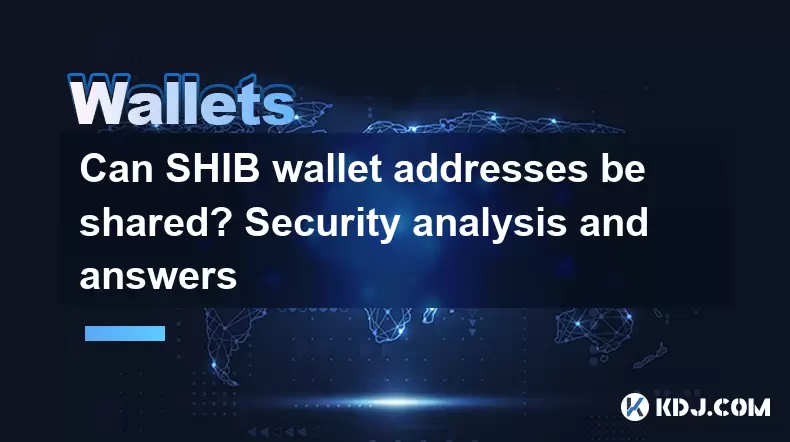
Introduction to SHIB Wallet Addresses
SHIB, or Shiba Inu, is a cryptocurrency that has gained significant attention within the crypto community. As with any cryptocurrency, the security of your assets is paramount, and this begins with understanding the nature of SHIB wallet addresses. A wallet address is a unique identifier used to send and receive SHIB tokens. The question of whether these addresses can be shared is crucial for maintaining the security of your assets.
The Nature of SHIB Wallet Addresses
A SHIB wallet address is a string of alphanumeric characters that serves as the public identifier for your wallet. This address is used to receive SHIB tokens and can be shared with others when you need to receive payments. However, the security implications of sharing this address are multifaceted and require careful consideration.
Security Risks of Sharing SHIB Wallet Addresses
Sharing your SHIB wallet address is generally considered safe because it is a public key, not a private key. The private key is what you need to keep secure, as it grants access to your funds. However, there are still risks associated with sharing your wallet address:
- Public Exposure: If your wallet address is shared widely, it can become associated with your identity. This could potentially lead to targeted phishing attempts or other forms of cyberattacks.
- Transaction Privacy: Sharing your address can compromise your transaction privacy. If someone knows your wallet address, they can track all transactions associated with it on the blockchain.
- Scams and Fraud: Scammers might use your shared address to create fake websites or emails that appear to come from you, tricking others into sending funds to your address under false pretenses.
Best Practices for Sharing SHIB Wallet Addresses
If you need to share your SHIB wallet address, follow these best practices to minimize risks:
- Use a New Address for Each Transaction: Many modern wallets allow you to generate a new address for each transaction. This enhances your privacy and security by making it harder to link all your transactions to a single address.
- Limit Exposure: Only share your address with trusted parties and avoid posting it on public forums or social media.
- Use Encrypted Communication: When sharing your address, use encrypted channels such as secure messaging apps to prevent interception by third parties.
- Monitor Your Address: Regularly check the transactions associated with your address to quickly identify any suspicious activity.
How to Generate and Manage SHIB Wallet Addresses
Generating and managing SHIB wallet addresses involves several steps to ensure security and efficiency. Here's how you can do it:
- Choose a Secure Wallet: Select a reputable wallet that supports SHIB, such as Trust Wallet or MetaMask. Ensure the wallet has strong security features like two-factor authentication (2FA).
- Generate a New Address: Open your wallet and navigate to the section where you can generate a new address. This is usually found under the "Receive" or "Generate Address" option.
- Copy the Address: Once the new address is generated, copy it carefully. Double-check the address to ensure there are no typos or errors.
- Share the Address: Use one of the secure methods mentioned earlier to share the address with the intended recipient.
- Label the Address: Many wallets allow you to label addresses for easier management. Use this feature to keep track of which addresses are used for what purpose.
Protecting Your SHIB Private Keys
While sharing your SHIB wallet address is generally safe, protecting your private keys is crucial. Here are some tips to keep your private keys secure:
- Never Share Your Private Key: Your private key should never be shared with anyone. Treat it like the password to your bank account.
- Use Hardware Wallets: Consider using a hardware wallet, which stores your private keys offline, making them less vulnerable to online attacks.
- Backup Your Keys: Store backups of your private keys in secure locations, such as a safe or a secure digital storage solution. Ensure these backups are encrypted.
- Use Strong Passwords: Protect your wallet with a strong, unique password and enable 2FA wherever possible.
Frequently Asked Questions
Q: Can I reuse my SHIB wallet address for multiple transactions?
A: Yes, you can reuse your SHIB wallet address for multiple transactions, but it is recommended to use a new address for each transaction to enhance privacy and security.
Q: What should I do if I accidentally share my private key?
A: If you accidentally share your private key, immediately transfer your SHIB tokens to a new wallet with a new set of keys. Monitor your old wallet for any unauthorized transactions and consider reporting the incident to the platform or wallet provider.
Q: How can I check the balance of my SHIB wallet address?
A: To check the balance of your SHIB wallet address, you can use a blockchain explorer like Etherscan. Simply enter your wallet address into the search bar, and the explorer will display all transactions and the current balance associated with that address.
Q: Is it safe to share my SHIB wallet address on social media?
A: It is generally not recommended to share your SHIB wallet address on social media due to the risks of public exposure and potential scams. If you must share it, use private messaging and ensure the recipient is trustworthy.
Disclaimer:info@kdj.com
The information provided is not trading advice. kdj.com does not assume any responsibility for any investments made based on the information provided in this article. Cryptocurrencies are highly volatile and it is highly recommended that you invest with caution after thorough research!
If you believe that the content used on this website infringes your copyright, please contact us immediately (info@kdj.com) and we will delete it promptly.
- Across Crypto Project Faces Heat: Secret $23M Transfer Sparks Governance Debate
- 2025-06-28 16:30:13
- Trump Coin's Wild Ride: Liquidity Drain, Exchange Deposits, and What It Means for Binance & OKX
- 2025-06-28 16:50:13
- Trump, Memecoin Mania, and Whale Watching: A New York Minute in Crypto
- 2025-06-28 16:30:13
- Shiba Inu, Lending Coins, and Early Holders: A New Frontier
- 2025-06-28 16:51:59
- Meme Coins in July 2025: Investing in the Future of Hype?
- 2025-06-28 16:51:59
- SUI's Trending Surge: Decoding the Reasons Behind the Hype
- 2025-06-28 16:55:12
Related knowledge

How to stake cryptocurrencies on Coinbase? Benefits and risks
Jun 27,2025 at 06:36pm
Understanding Cryptocurrency Staking on CoinbaseStaking cryptocurrencies involves locking up digital assets to support the operations of a blockchain network, typically in return for rewards. Coinbase, one of the most popular cryptocurrency exchanges globally, offers staking services for several proof-of-stake (PoS) coins. Users can stake their holdings...

How to contact Coinbase customer service? Support channels and response times
Jun 28,2025 at 01:29pm
Contacting Coinbase Customer Service: Support Channels and Response TimesIf you're a user of Coinbase, reaching their customer service team may become necessary for various reasons, such as account verification issues, transaction disputes, or technical difficulties. Understanding the different support channels available and what to expect in terms of r...
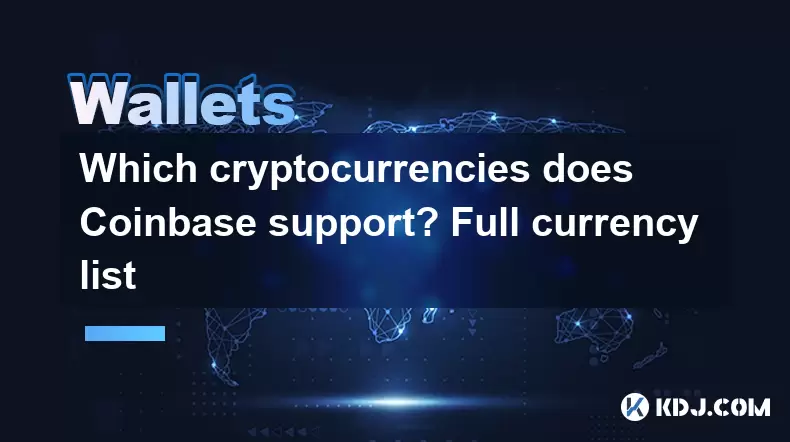
Which cryptocurrencies does Coinbase support? Full currency list
Jun 28,2025 at 08:36am
Overview of Cryptocurrencies Supported by CoinbaseCoinbase is one of the most popular and trusted cryptocurrency exchanges globally. It provides users with a platform to buy, sell, trade, and store various digital assets. As of the latest updates, Coinbase supports over 200 cryptocurrencies, including major ones like Bitcoin (BTC), Ethereum (ETH), and L...
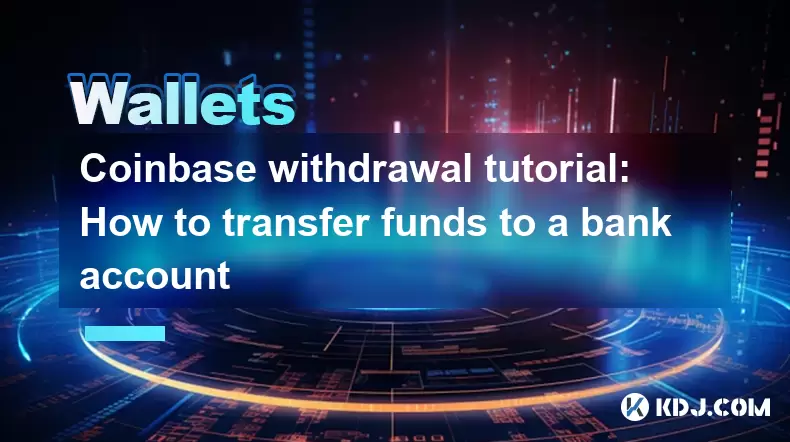
Coinbase withdrawal tutorial: How to transfer funds to a bank account
Jun 28,2025 at 02:35am
Understanding Coinbase WithdrawalsCoinbase is one of the most widely used cryptocurrency platforms, allowing users to buy, sell, and store digital assets. Once you've successfully traded or held your crypto on Coinbase, the next logical step may be to withdraw funds to a bank account. This process involves converting your cryptocurrency into fiat curren...
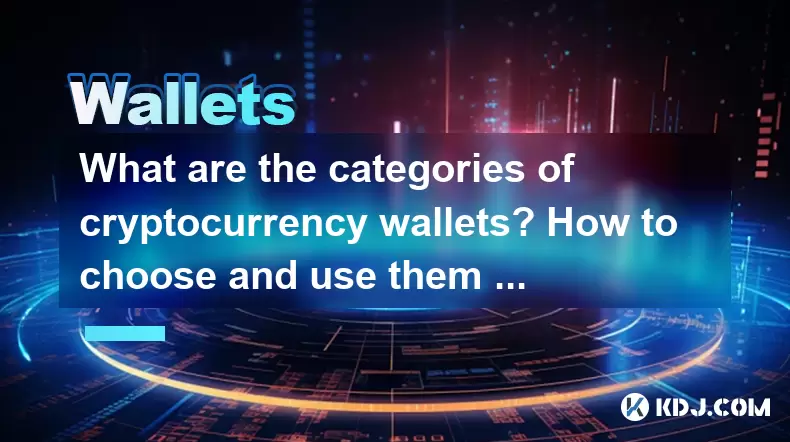
What are the categories of cryptocurrency wallets? How to choose and use them safely?
Jun 21,2025 at 10:42pm
Understanding Cryptocurrency WalletsCryptocurrency wallets are essential tools for anyone involved in the digital asset ecosystem. They allow users to store, send, and receive cryptocurrencies securely. Unlike traditional wallets that hold physical money, crypto wallets manage cryptographic keys—private and public—which interact with blockchain networks...
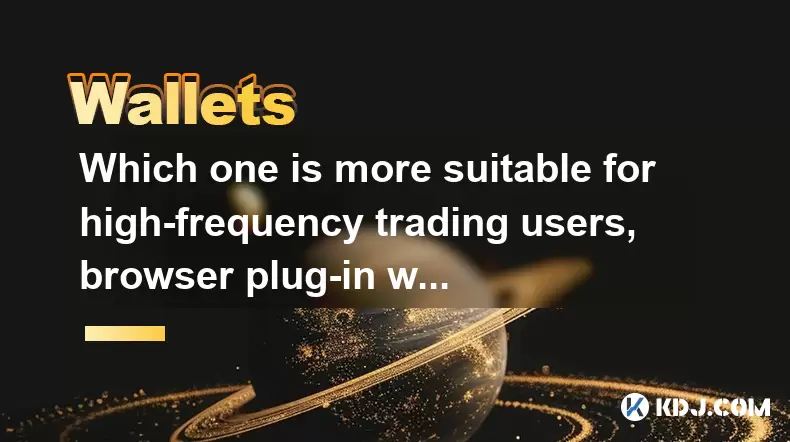
Which one is more suitable for high-frequency trading users, browser plug-in wallets or independent application wallets?
Jun 23,2025 at 08:22am
Understanding the Role of Wallets in High-Frequency TradingFor high-frequency trading (HFT) users in the cryptocurrency market, wallet selection is critical due to the need for speed, security, and seamless integration with trading platforms. HFT involves executing a large number of trades within seconds or even milliseconds, which demands a wallet that...

How to stake cryptocurrencies on Coinbase? Benefits and risks
Jun 27,2025 at 06:36pm
Understanding Cryptocurrency Staking on CoinbaseStaking cryptocurrencies involves locking up digital assets to support the operations of a blockchain network, typically in return for rewards. Coinbase, one of the most popular cryptocurrency exchanges globally, offers staking services for several proof-of-stake (PoS) coins. Users can stake their holdings...

How to contact Coinbase customer service? Support channels and response times
Jun 28,2025 at 01:29pm
Contacting Coinbase Customer Service: Support Channels and Response TimesIf you're a user of Coinbase, reaching their customer service team may become necessary for various reasons, such as account verification issues, transaction disputes, or technical difficulties. Understanding the different support channels available and what to expect in terms of r...

Which cryptocurrencies does Coinbase support? Full currency list
Jun 28,2025 at 08:36am
Overview of Cryptocurrencies Supported by CoinbaseCoinbase is one of the most popular and trusted cryptocurrency exchanges globally. It provides users with a platform to buy, sell, trade, and store various digital assets. As of the latest updates, Coinbase supports over 200 cryptocurrencies, including major ones like Bitcoin (BTC), Ethereum (ETH), and L...

Coinbase withdrawal tutorial: How to transfer funds to a bank account
Jun 28,2025 at 02:35am
Understanding Coinbase WithdrawalsCoinbase is one of the most widely used cryptocurrency platforms, allowing users to buy, sell, and store digital assets. Once you've successfully traded or held your crypto on Coinbase, the next logical step may be to withdraw funds to a bank account. This process involves converting your cryptocurrency into fiat curren...

What are the categories of cryptocurrency wallets? How to choose and use them safely?
Jun 21,2025 at 10:42pm
Understanding Cryptocurrency WalletsCryptocurrency wallets are essential tools for anyone involved in the digital asset ecosystem. They allow users to store, send, and receive cryptocurrencies securely. Unlike traditional wallets that hold physical money, crypto wallets manage cryptographic keys—private and public—which interact with blockchain networks...

Which one is more suitable for high-frequency trading users, browser plug-in wallets or independent application wallets?
Jun 23,2025 at 08:22am
Understanding the Role of Wallets in High-Frequency TradingFor high-frequency trading (HFT) users in the cryptocurrency market, wallet selection is critical due to the need for speed, security, and seamless integration with trading platforms. HFT involves executing a large number of trades within seconds or even milliseconds, which demands a wallet that...
See all articles
























































































